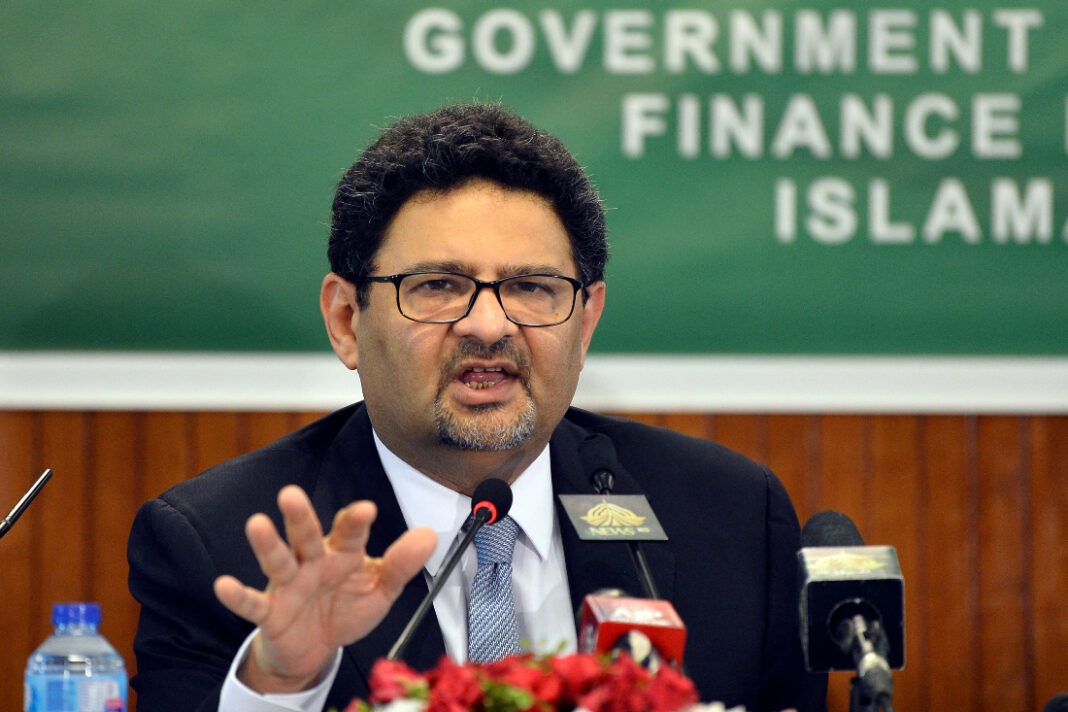KARACHI: Finance Minister Miftah Ismail said on Thursday that Pakistan would receive $1.17 billion from the International Monetary Fund as part of a stalled $6 billion loan package, following months of talks and deeply unpopular belt-tightening measures by the government of Prime Minister Shehbaz Sharif.
A statement from the IMF on Wednesday said a “staff-level agreement” that is still subject to board approval would bring to $4.2 billion the amount dispersed under an Extended Fund Facility that could increase to $7 billion and stretch until June next year.
Pakistan entered the IMF program in 2019 spread over three years and three months, but with less than half the amount disbursed, the IMF suspended the bailout earlier this year after Imran Khan, the previous prime minister, announced unfunded subsidies for the oil and power sectors. Khan’s government was ousted in April. The new government has since raised the prices of petroleum products at least four times to meet IMF conditions.
The resumption of the stalled program is expected to end months of uncertainty in the currency and equity markets.
“We will soon receive $1.17b as the combined 7th & 8th tranche,” Ismail said in a Twitter post on Thursday morning.
The IMF team, led by Nathan Porter, said it had finalized discussions for the combined seventh and eighth reviews of Pakistan’s economic program supported by an IMF EFF.
“Subject to Board approval, about $1,177 million (SDR 894 million) will become available, bringing total disbursements under the program to about $4.2 billion,” Porter said in the statement.
“Additionally, in order to support program implementation and meet the higher financing needs in FY23, as well as catalyze additional financing, the IMF Board will consider an extension of the EFF until end-June 2023 and an augmentation of access by SDR 720 million that will bring the total access under the EFF to about $7 billion.”
Pakistan desperately needs help from international donors and institutions to support depleting foreign exchange reserves, a falling currency and inflation, at a 13-year-high.
“Pakistan is at a challenging economic juncture. A difficult external environment combined with procyclical domestic policies fueled domestic demand to unsustainable levels,” the IMF said. “The resultant economic overheating led to large fiscal and external deficits in FY22, contributed to rising inflation, and eroded reserve buffers.”
Outlining policy priorities, the IMF said steadfast implementation of the budget for the fiscal year 2023, power sector reforms, a proactive monetary policy to guide inflation to more moderate levels, reduction in poverty and strengthening social safety and governance were the key policy actions to support the program.
Pakistan has assured the IMF it will improve governance and mitigate corruption by setting up a robust electronic asset declaration system and plans to undertake a comprehensive review of its anti-corruption institutions, including the National Accountability Bureau, to enhance its effectiveness in investigating and prosecuting corruption cases.
“Steadfast implementation of the outlined policies, underpinning the SLA for the combined seventh and eighth reviews, will help create the conditions for sustainable and more inclusive growth,” the IMF statement said.
“The authorities should nonetheless stand ready to take any additional measures necessary to meet program objectives, given the elevated uncertainty in the global economy and financial markets.”




